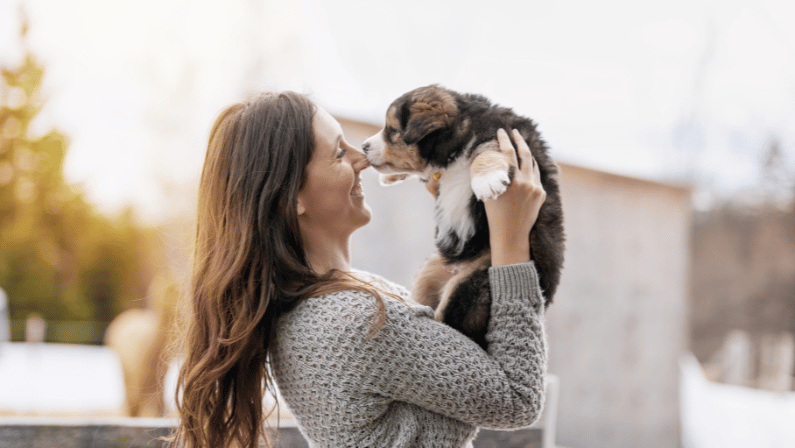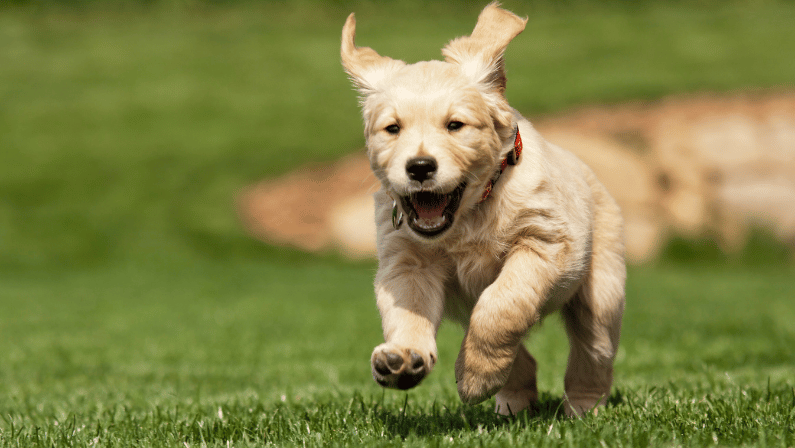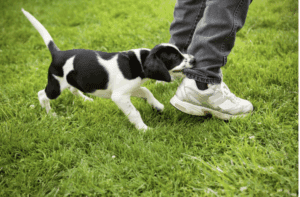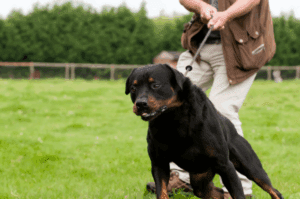The Importance of Understanding Puppy Behavior Stages
Understanding the various puppy behavior stages is essential for any dog owner. It allows you to comprehend your pup’s actions as they mature. Each stage, from their playful puppy days to their socialization process, plays a vital role in their overall development.
By familiarizing yourself with puppy age stages, you will be better equipped to tackle challenges, instill positive habits, and foster a deep bond with your puppy. Learning about puppy behavior stages goes beyond simply deciphering your dog’s behavior; it is about nurturing their growth into content, well-behaved adult dogs while simultaneously enjoying a remarkable friendship throughout the journey.
Key Puppy Behavior Stages
Neonatal Stage (0-4 weeks)
- Senses are not fully developed
In the neonatal stage, lasting from birth to around four weeks, puppies’ senses are underdeveloped. With closed eyes and ears, they rely on touch and smell. This phase is crucial for bonding and basic survival skills.
- Spend most of the time sleeping
During the neonatal stage, puppies spend the majority of their time sleeping. This rest is crucial for their rapid growth and development. It’s essential to provide a comfortable environment for uninterrupted sleep, supporting their health and well-being during this critical period.
- Rely on mother for warmth and nutrition
In this stage, puppies depend solely on their mother for warmth and nutrition. They rely on nursing for essential nutrients and warmth, as they are unable to regulate their body temperature independently. This early bond with the mother is critical for the puppies’ development, underscoring the importance of ensuring the mother dog’s well-being to support her litter’s growth.
- Limited interaction
Puppies have minimal interaction during this stage. With closed eyes and ears, they rely on touch and smell, spending most of their time nursing and sleeping under their mother’s care. Human interaction should be gentle to avoid stress and foster a calm environment for optimal development.

Socialization Stage (3-12 weeks)
- Crucial period for development
The socialization stage, which lasts from 3 to 14 weeks of age, is pivotal for a puppy’s development. During this time, puppies explore their environment, learn social skills, and adapt to new experiences.
Positive interactions and exposure to various stimuli help shape their behavior and prevent future issues like fearfulness or aggression. Ensuring ample socialization opportunities is key to raising a well-adjusted and confident adult dog.
- Puppies learn social skills from littermates and humans
During this stage, puppies develop vital social skills through interactions with littermates and humans. These experiences teach them communication, play behavior, and bite inhibition. Supervised play and exposure to different environments are key for well-rounded adult dogs.
- Introduce to new sights, sounds, and people
Expose puppies to diverse experiences during this stage. Introduce them to new sights, sounds, and people, including different environments and various individuals. This early exposure fosters confidence and helps them adapt to different situations later in life.
- Begin basic obedience training
During the socialization stage, puppies become more curious and interactive. This is a prime time to start basic obedience training, such as teaching commands such as “sit” and “stay.”
At K9 Mania Dog Training, we specialize in a puppy training program designed to foster good behavior and communication skills early on. Our sessions are fun and rewarding, and we use personalized techniques to encourage desired behaviors.
Pre-Adolescence (4-6 months)
- Increased independence and curiosity
In the pre-adolescence stage, puppies show more independence and curiosity. They explore their surroundings actively, testing boundaries and venturing away from their mother and littermates. This phase is vital for developing confidence and social skills through play and interaction with the environment.
- Teething and chewing become prominent
During this stage, puppies undergo teething, a natural process where their baby teeth fall out to make way for their permanent teeth. This teething phase can be uncomfortable for puppies, often causing sore gums and itching sensations. As a result, puppies tend to exhibit increased chewing behavior as they seek relief from the discomfort.
- Introduce chew toys and redirect unwanted chewing
Because of their natural chewing tendencies during this stage, introducing chew toys redirects this behavior and prevents damage. Offering safe options encourages healthy chewing habits, guiding them towards appropriate behavior as they mature.
- Continued socialization and training
As puppies transition into the pre-adolescence stage, ongoing socialization and training become increasingly important. This stage is a critical period for shaping a puppy’s behavior and building a strong foundation for future learning.
K9 Mania Dog Training’s specialized puppy training program offers comprehensive guidance tailored to the specific needs of young dogs. Through structured socialization exercises, common puppy behavior problems such as chewing and biting are effectively addressed.
Sexual Maturity (6-12 months)
- Hormonal changes can influence behavior
As dogs reach sexual maturity, hormonal fluctuations can profoundly affect their behavior. These changes manifest differently in males and females but commonly include heightened territorial instincts, increased mounting behavior, and occasional aggression. Such shifts can sometimes catch owners off guard, leading to misunderstandings or conflicts within the household.
- Marking territory, mounting, and humping might occur
Marking territory, mounting, and humping are common behaviors that can emerge as puppies reach sexual maturity, usually between six and nine months of age. These behaviors are influenced by hormonal changes and the natural progression of a dog’s development. Marking territory, often through urination, is a way for dogs to establish their presence and communicate with other animals in their environment.
- Importance of neutering/spaying
As puppies reach sexual maturity, typically around six to nine months of age, the decision to neuter or spay your dog becomes crucial. Beyond just preventing unwanted litters, neutering and spaying offer numerous health benefits, including reducing the risk of certain cancers and curbing behavioral issues associated with mating instincts.
- Consistent training to manage new behaviors
During this crucial stage and other developmental stages of puppy behavior, consistent training becomes essential for effectively addressing and managing behavioral shifts. At K9 Mania Dog Training, we understand the challenges that come with different puppy behavior stages, which is why our specialized puppy training program is designed to provide tailored support for both you and your puppy.
Our experienced trainers offer personalized guidance and proven techniques to address behaviors such as marking, aggression, and wandering. With K9 Mania by your side, you can navigate this transition with confidence, ensuring a long-term, harmonious relationship with your puppy.
Emotional Maturity (12-18 months)
- Personality becomes more established
A puppy’s personality undergoes significant development during emotional maturity. This period is crucial as individual traits and temperament become more pronounced. Owners may notice distinct behavioral patterns emerging, reflecting the unique character of their canine companion.
- May exhibit stubbornness or dominance
During this phase, puppies may display signs of stubbornness or dominance. This behavior stems from their increasing independence and confidence as they assert themselves in their surroundings.
- Continued training
Throughout this stage and other puppy age stages, ongoing training remains essential for reinforcing good behavior and maintaining a strong bond between dog and owner. While basic obedience may have been established, ongoing training ensures that skills are honed and any remaining behavioral issues are addressed.
Whether it’s reinforcing good behavior, tackling specific problem areas, or introducing advanced training techniques, our team at K9 Mania is committed to helping you and your puppy navigate these critical developmental stages of a puppy with confidence and success.
- Address any behavioral concerns
Emotional maturity in dogs is a gradual process, often spanning several years. During this stage, it’s crucial to address any behavioral concerns promptly and effectively. At K9 Mania Dog Training, our experienced team understands the complexities of canine behavior and offers tailored solutions to help address issues such as anxiety, fearfulness, aggression, or separation anxiety.
By seeking guidance from our qualified trainers or behaviorists, you can gain valuable insights and techniques to support your dog’s emotional well-being and foster a harmonious relationship.
Fear Periods
Fear periods are crucial stages in a dog’s development, occurring around 8-16 weeks and 6-14 months. During these times, puppies may show signs of fear or anxiety towards new experiences. Dog owners should be aware of these periods and offer support and reassurance to help their dogs navigate them successfully. By providing positive experiences and avoiding unnecessary stressors, owners can help their dogs build confidence and resilience, ensuring a well-adjusted adult dog.
Tips for Managing Puppy Behavior
- Establish a routine: Consistency is key to helping your puppy understand what’s expected of them. Set regular feeding, potty, play, and sleep times.
- Socialization: Introduce your puppy to different people, animals, environments, and experiences early on to help them become well-adjusted and confident adults.
- Supervision: Monitor your puppy closely, especially during the early stages, to prevent accidents and unwanted behaviors. Use baby gates or crates when necessary.
- Training: Teach basic commands like “sit,” “stay,” “come,” and “leave it.” Training sessions should be short, fun, and consistent.
- Provide outlets for energy: Puppies have lots of energy to burn. Make sure they get enough exercise through walks, playtime, and mental stimulation.
- Be patient and understanding: Remember that puppies are learning and growing every day. Stay patient, consistent, and gentle in your approach to training and behavior management.
- Seek professional help when needed: If you’re struggling with specific behavior issues or training challenges, don’t hesitate to consult a professional dog trainer or behaviorist for guidance and support.
Solve Your Puppy Problems with K9 Mania Dog Training
Understanding the various developmental stages of a puppy is not just essential; it’s a fundamental aspect of responsible dog ownership. From the tender neonatal phase to the complexities of emotional maturity, each stage presents unique challenges and opportunities for growth. By familiarizing yourself with these stages and implementing proactive measures, you can ensure a smooth journey for both you and your puppy.
At K9 Mania Dog Training, we specialize in providing the guidance and support needed to navigate these crucial stages with your puppy successfully. Our experienced trainers offer personalized solutions tailored to your puppy’s specific needs, ensuring a harmonious relationship and a lifetime of happiness together.
Contact K9 Mania Dog Training today, and let our experienced trainers provide the guidance and support you need for a harmonious relationship and a lifetime of happiness with your dog.






